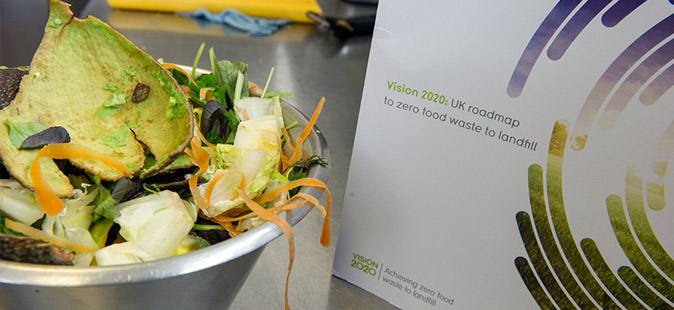UK Roadmap to achieve zero food waste to landfill launched

A major report which sets out to stop billions of pounds worth of food being consigned to landfill was launched in London on 11th November 2013. The report, entitled ‘Vision 2020: UK Roadmap to Zero Food Waste to Landfill’, is the culmination of more than two years’ work and sets the framework to achieve a food waste-free future by 2020.
Its ambition is to:
- Save the UK economy over £17bn a year by 2020 through the reduction of food wasted by households, businesses and the public sector.
- Prevent 27m tonnes of greenhouse gas (GHG) a year from entering the atmosphere.
- Return over 1.3m tonnes a year of valuable nutrients to the soil.
- Generate over 1 terrawatt-hour (Twh) electricity a year, enough to power over 600,000 homes.
The report has been authored by ReFood, the UK’s foremost food waste recycler, in collaboration with BioRegional, an entrepreneurial charity that promotes sustainable businesses through its One Planet Living philosophy.
In order to achieve zero food waste to landfill by 2020, the report's principal recommendations are:
- A clear timetable for the phased introduction of a ban on food waste to landfill to come into full force by 2020, allowing industry the time to finance and develop an optimum collection and processing infrastructure.
- Compulsory separate collections of food waste from homes and businesses, with an outcome that optimises its value to provide energy, nutrients for agriculture and, preferably, heat.
- Greater collaboration at every stage of the supply chain and between key stakeholders to accelerate the adoption of best practice, improve waste prevention and maximise the value of food waste as a resource.
- The integration of food waste education into school, college and professional training programmes and increased support for WRAP’s 'Love Food Hate Waste' initiative.
The report highlights where and why food waste is happening at each stage of the UK supply chain; what actions are being taken to tackle food waste in each sector and what more can be done in the future to drive the positive environmental, economic and social outcomes, for the greater good.
< Back to News